Introduction
The recently aired Would You Marry Me? is considered a light-hearted, cliché-filled Korean romcom that deliberately evokes the feel of classic “old-school” K-dramas (for example: Full House, a 2004 drama with a similar contract marriage theme). “Old-school” Korean dramas (K-dramas) typically refer to influential series from the 1990s and 2000s that were instrumental in the Korean Wave (Hallyu). These often feature classic tropes like the “rich guy/poor girl” dynamic, fake relationships, and love triangles.
As a reminder, this article is not meant to review the drama itself. I will write about how the use of classic K-drama tropes as a plot device can either be nostalgic (charm) or despised (curse). In general, the criticism of the overuse of tropes is not unique to Would You Marry Me? but also many other romance dramas. Not only K-dramas but also romance dramas from every country in the world, as long as there are human interactions.
I used Would You Marry Me? as a case study of exploring the use of romantic clichés, which either accept a nostalgia/charm of the “old-school” dramas, or are despised/receive backlash because of the predictable/boring/overused plot. As usual, besides the main discussion, I will also put all drama details and a mini review. I will not list all the clichés used in this drama, or I will spoil everything for readers who haven’t watched it yet.
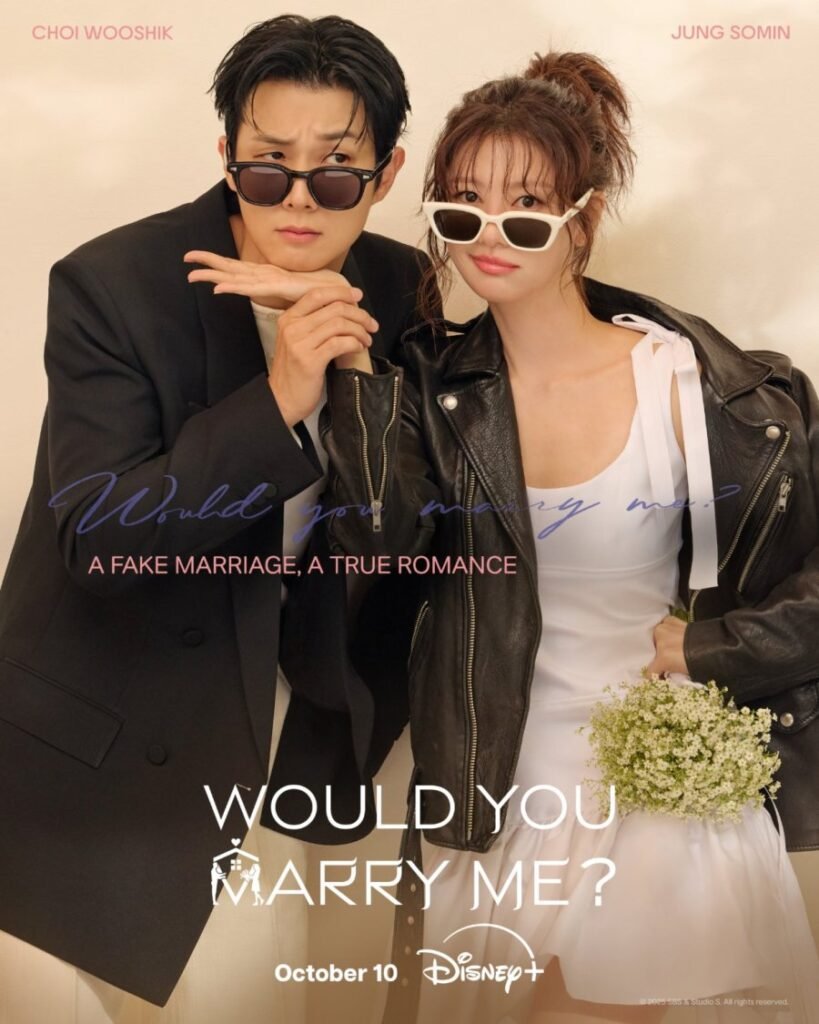
Drama Info
Drama title: Would You Marry Me? (Native title: 우주메리미 )
Alternative titles: U Ju Meri Mi
Genres: Comedy, Romance, Drama, Family
Aired: 10 Oct, 2025 - 15 Nov, 2025
Episodes: 12 | Duration: 1 hr 10 min.
Directors: Song Hyun Wook ( 송현욱 ) and Hwang In Hyeok ( 황인혁 )
Screenwriter: Lee Ha Na ( 이하나 )
Where to watch: Disney+ and Hulu
Trailer
OST
너여야만 해 (It Has to Be You) by Seungmin (승민)(Straykids)
아직 난 그날에 살아 (I’m Still Living That Day) by Kim Na Young (김나영)
이 세상 끝까지 (To The End of This World) by NCT WISH
One In a Million by Yang Yo Seob (양요섭)
그댄 알고 있나요 (Do You Know?) by Lee Hai Ri (이해리) (Davichi)
Hoot Du Du by JAESSBEE (재쓰비)
Because of You by Jung Seung Hwan (정승환)
내일이면 (Tomorrow) by Im Se Jun (임세준)
This Time by Kim Soo Young (김수영)
Synopsis
Two strangers enter a 90-day fake marriage to claim a luxury townhouse prize. (Source: Hulu)
Characters
Relationship Chart
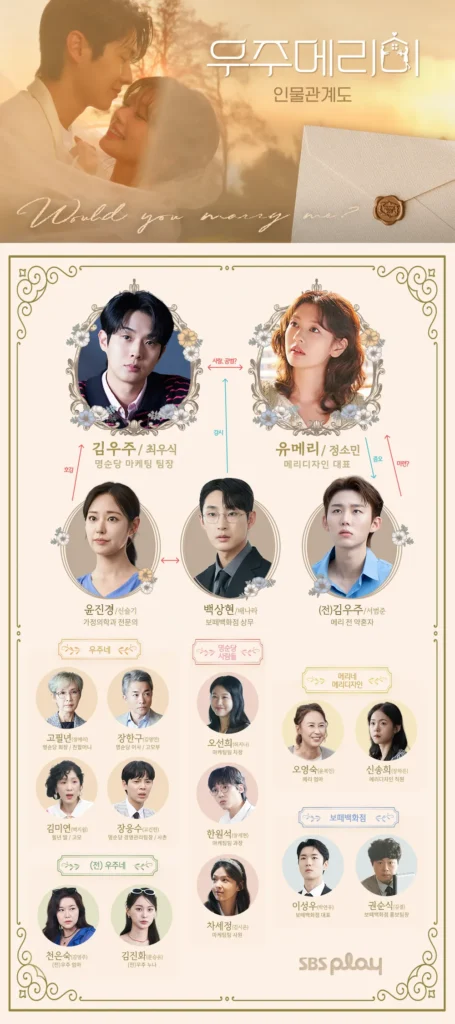
Main Characters
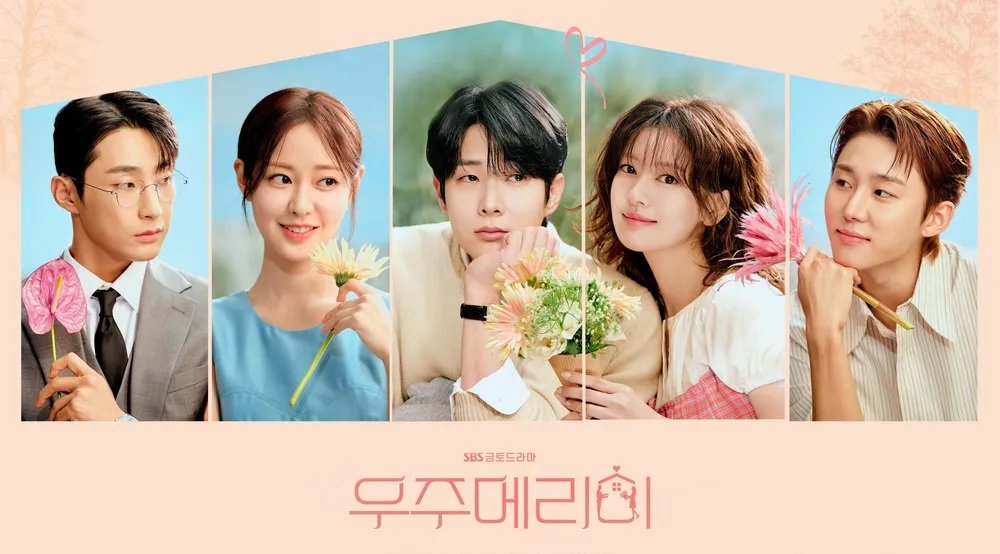
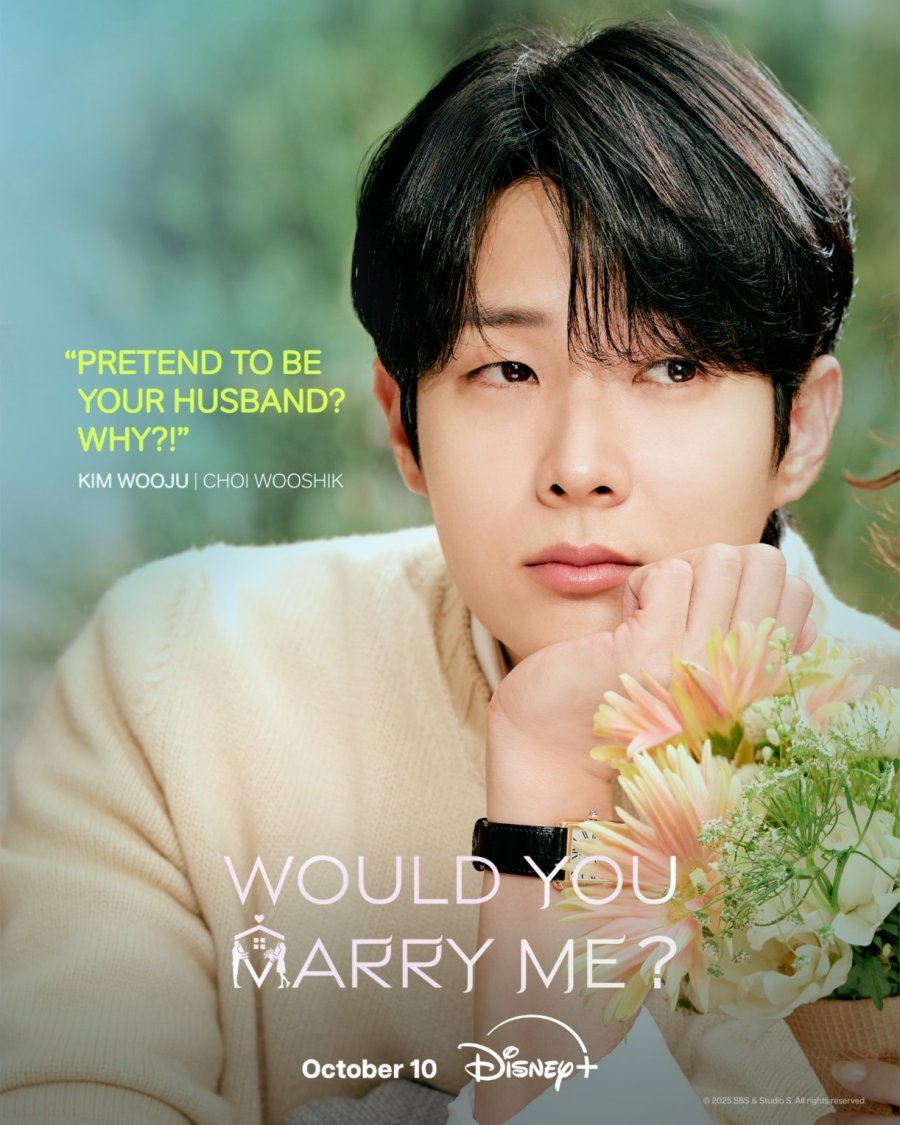
Choi Woo Shik ( 최우식 ) as Kim U Ju
Age 34. Kim U Ju is the only son and fourth-generation heir of Myungsoondang, South Korea’s oldest bakery, founded 80 years ago. He is a talented marketing team leader and perfectionist, yet a logical narcissist determined to run the family business in his late father’s place. His professional relationship with Yoo Me Ri, a designer from a partner company, takes an unexpected turn, pulling them into a whirlwind situation that forces him to become her fake husband. (Source: MyDramaList)
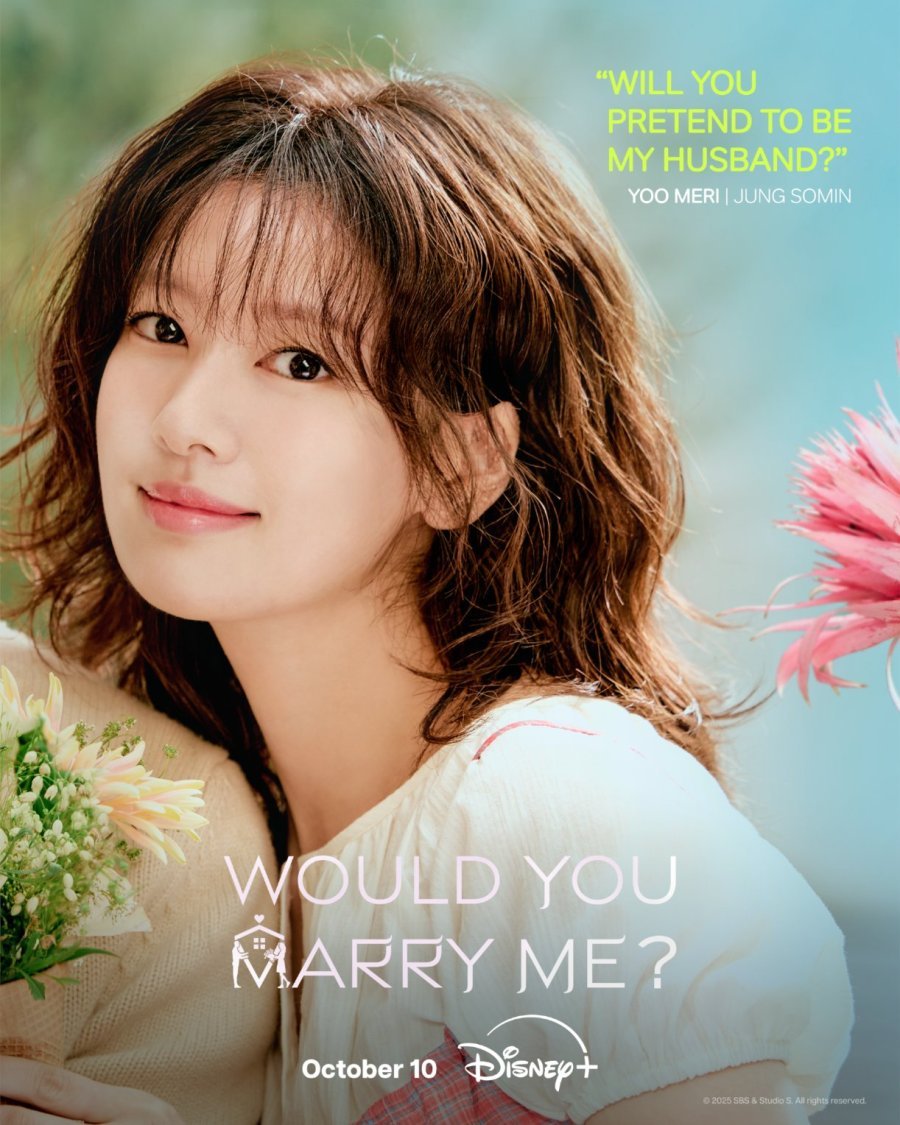
Jung So Min ( 정소민 ) as Yoo Me Ri
Age 33. Yoo Me Ri is a quirky and hot-tempered designer who seeks out a fake husband to protect the newlyweds’ special prize of a top-class town house. She is a bride-to-be who, having experienced a series of hardships in her life, including a broken engagement due to her fiancé’s infidelity and a fraudulent lease of her new home, proposes to Kim U Ju, who has the same name as her ex-fiancé, to protect the newlywed home she won after the breakup. (Source: MyDramaList)
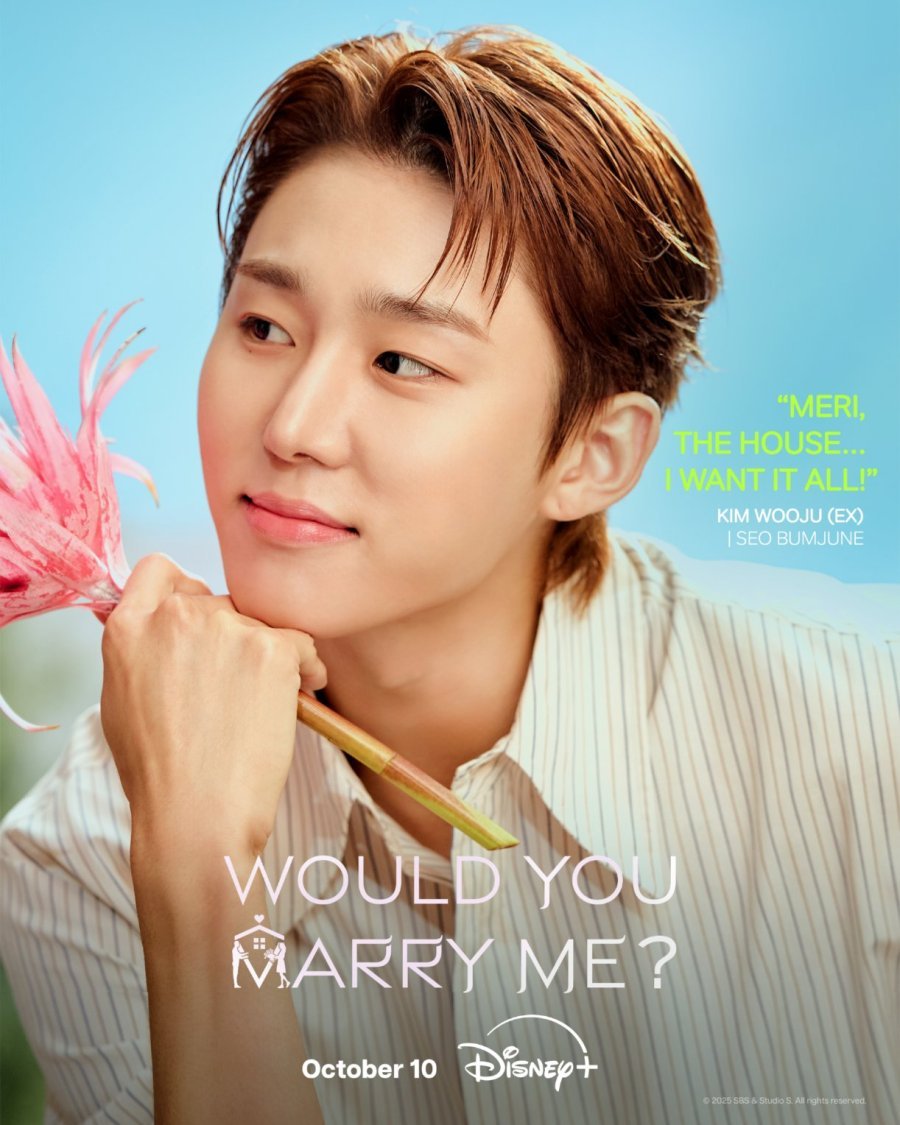
Seo Bum Jun ( 서범준 ) as Kim U Ju
Age 30. Mary’s former fiancé.
A handsome, tall, and well-rounded young man from a family of professors, who graduated from a prestigious university with a degree in mathematics and is now employed at a financial company.
He’s a pathetic character who loves being pampered and sulks when he’s not, and when he sulks, he gets childish and petty.
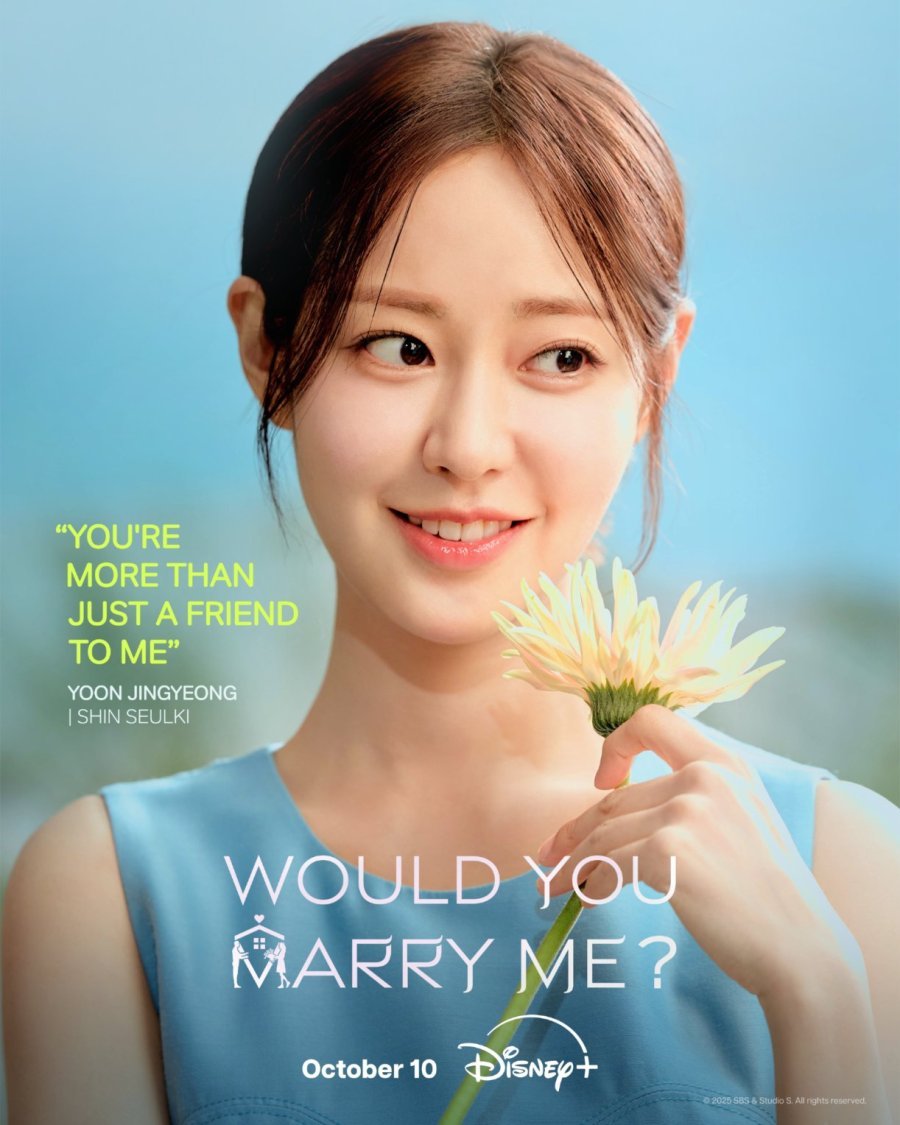
Shin Seul Ki ( 신슬기 ) as Yun Jin Gyeong
Age 30. U Ju’s long time friend. A family medicine specialist.
A quirky charmer who isn’t afraid to do a gag dance if it’s for the patients. Jin Gyeong and U Ju have known each other since they were kids, as their families have been acquainted for a long time. She has a crush on U Ju but can’t say anything for fear of making their relationship awkward. Then one day, she finds out that U Ju is pretending to be married.
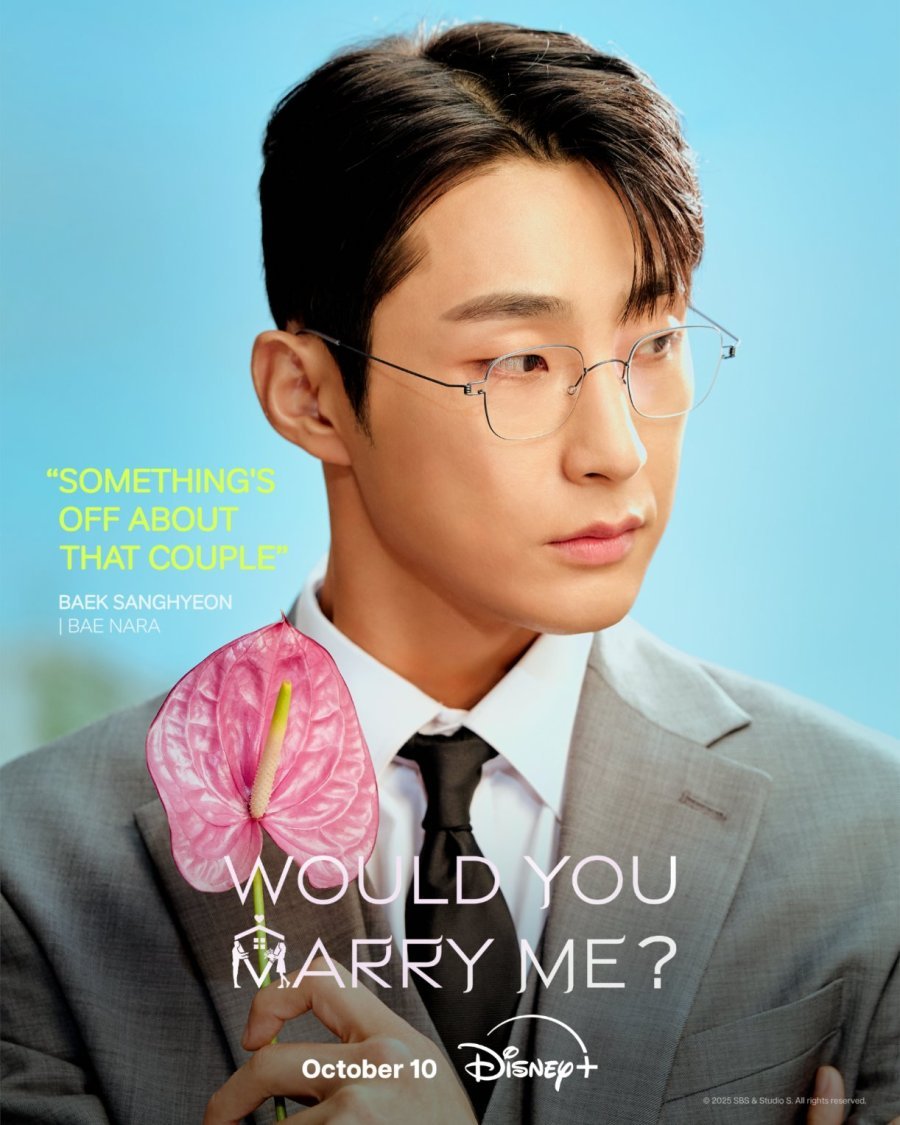
Bae Na Ra ( 배나라 ) as Baek Sang Hyeon
Age 36. A man torn between ambition and conscience.
When he was in middle school, he accidentally helped the youngest son of the Beauté Group, and that’s how their connection began.
Currently, he is the Store Managing Director of the Beauté Department Store. He has a love-hate relationship with his friend Lee Seong U, who is also the CEO of the department store, because he has to clean up all the messes his friend has made.
Supporting Characters
Kim U Ju’s family
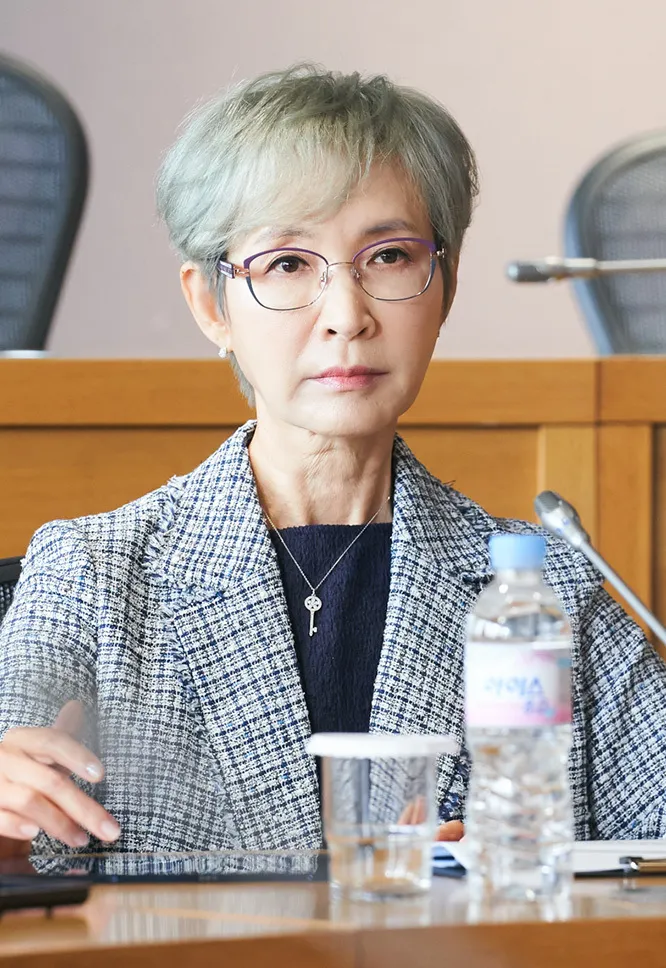
Ko Pil Nyeon (Jung Ae Ri) – Myungsoondang’s president, U Ju’s grandmother
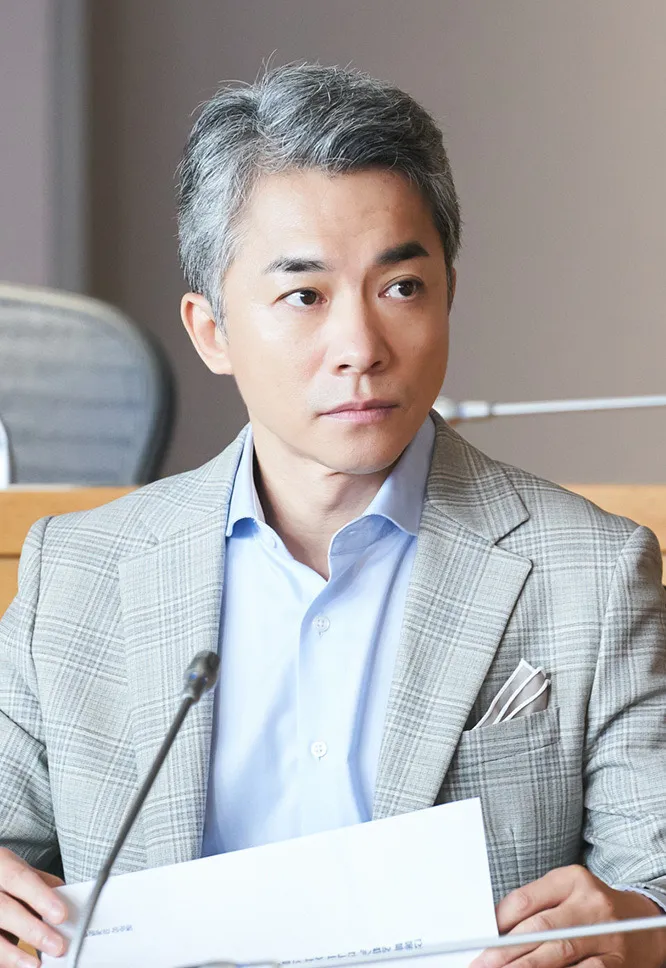
Jang Han Gu (Kim Young Min) –
Myungsoondang’s director, U Ju’s uncle
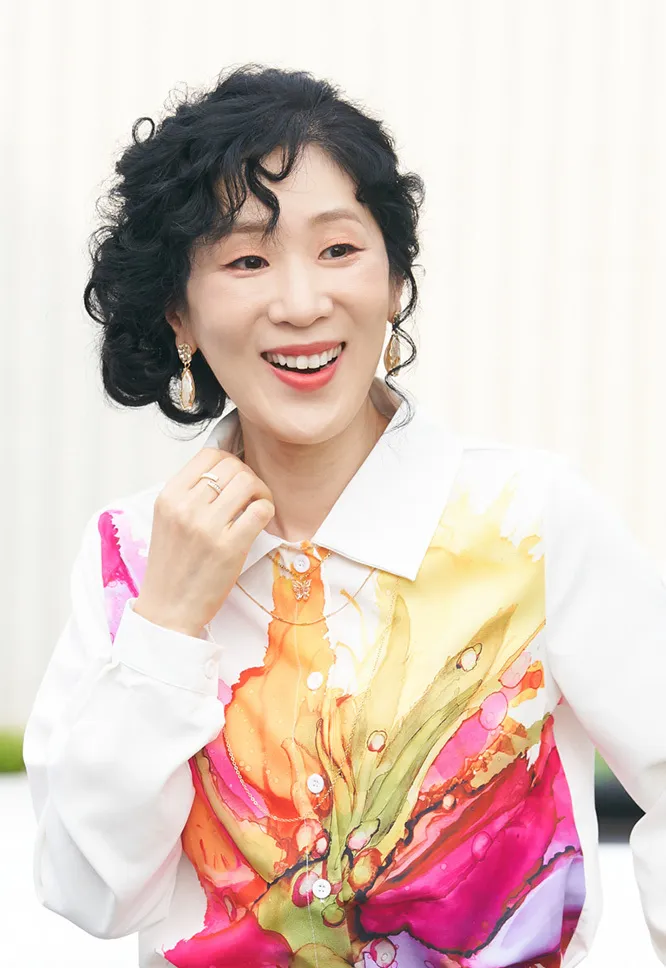
Kim Mi Yeon (Baek Ji Won) – U Ju’s aunt
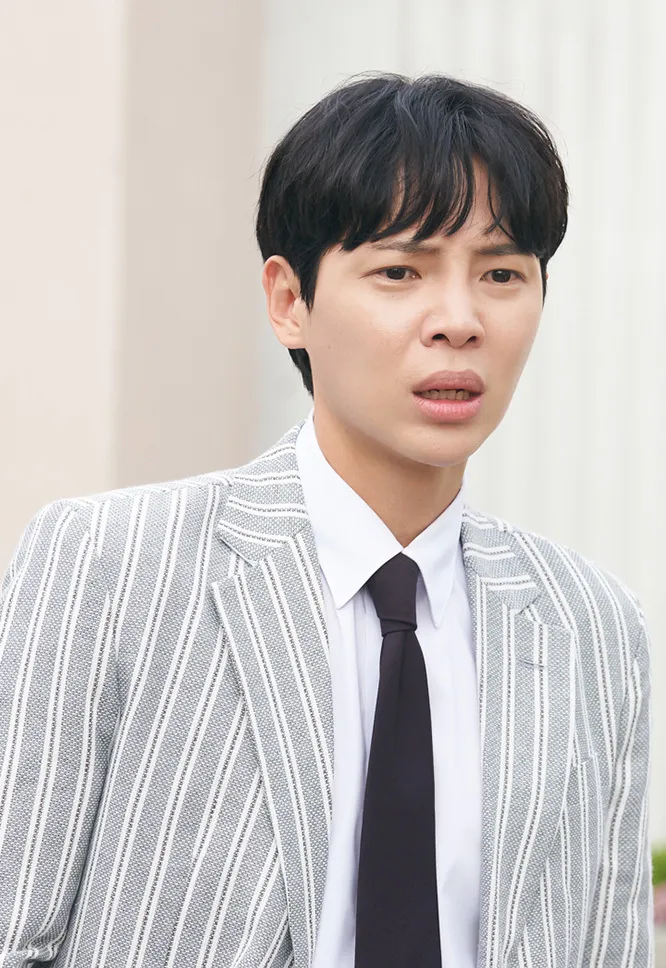
Jang Eung Su (Go Geon Han) – U Ju’s cousin
Myungsoondang Marketing Team Members
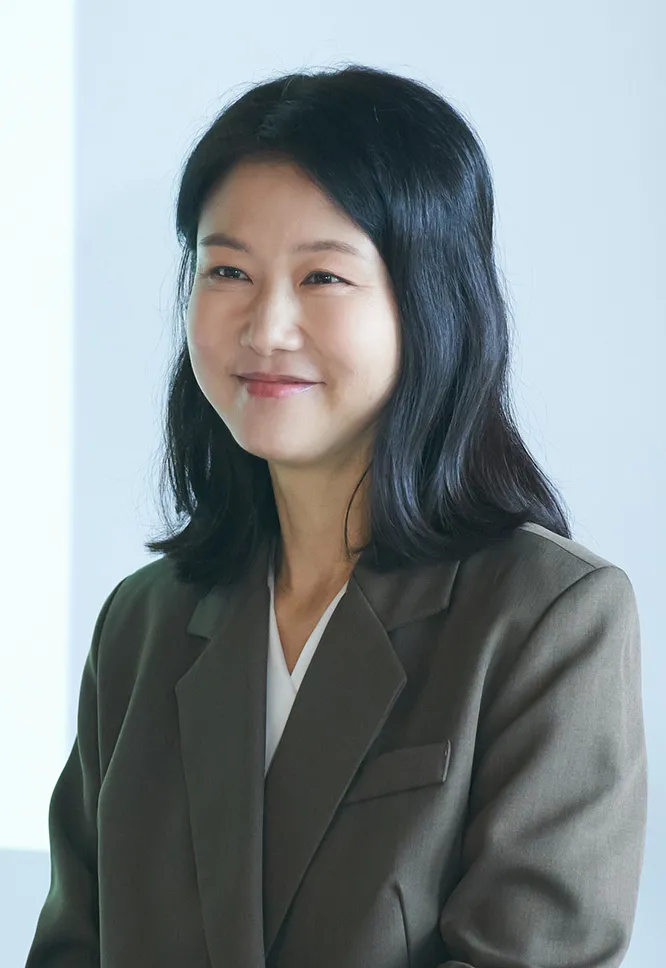
O Seon Hui (Heo Ji Na
O Seon Hui) – Marketing team deputy manager
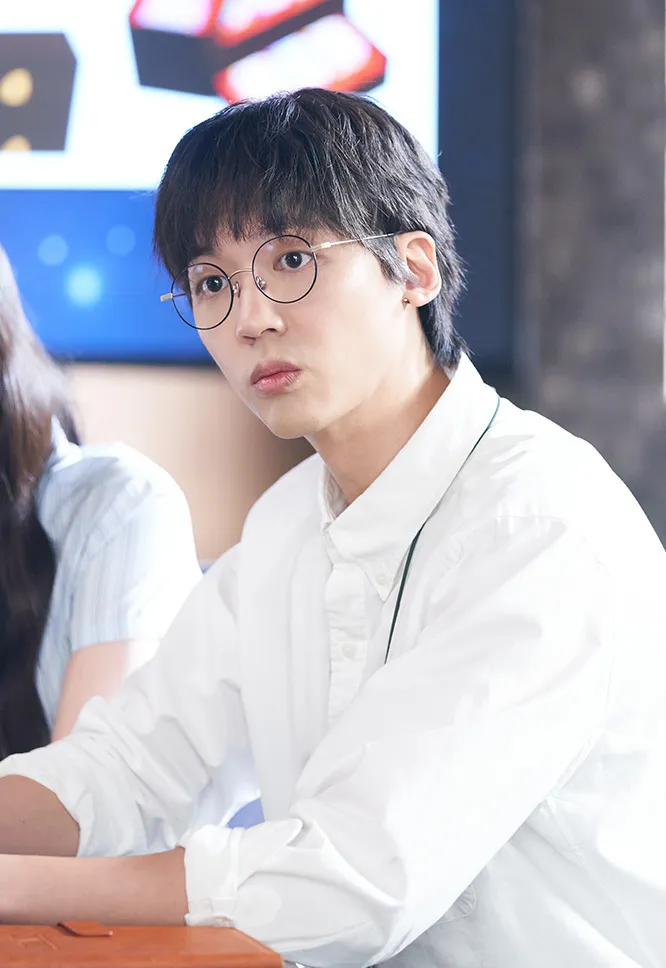
Han Won Seok (Jang Se Hyun) – Marketing team manager
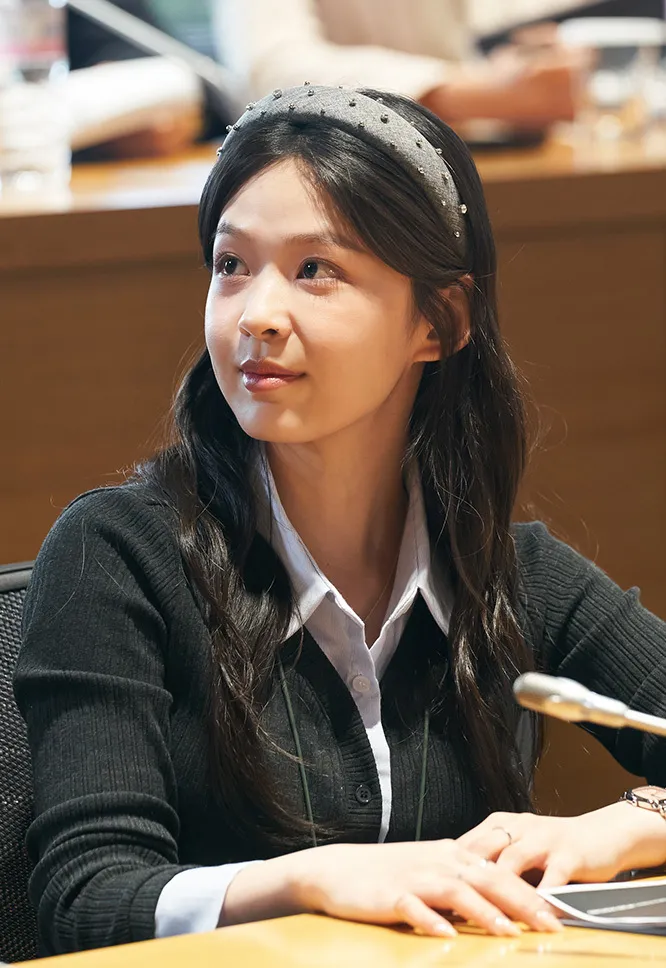
Cha Se Jeong (Kim Si Eun) – Marketing team employee
People Around Me Ri
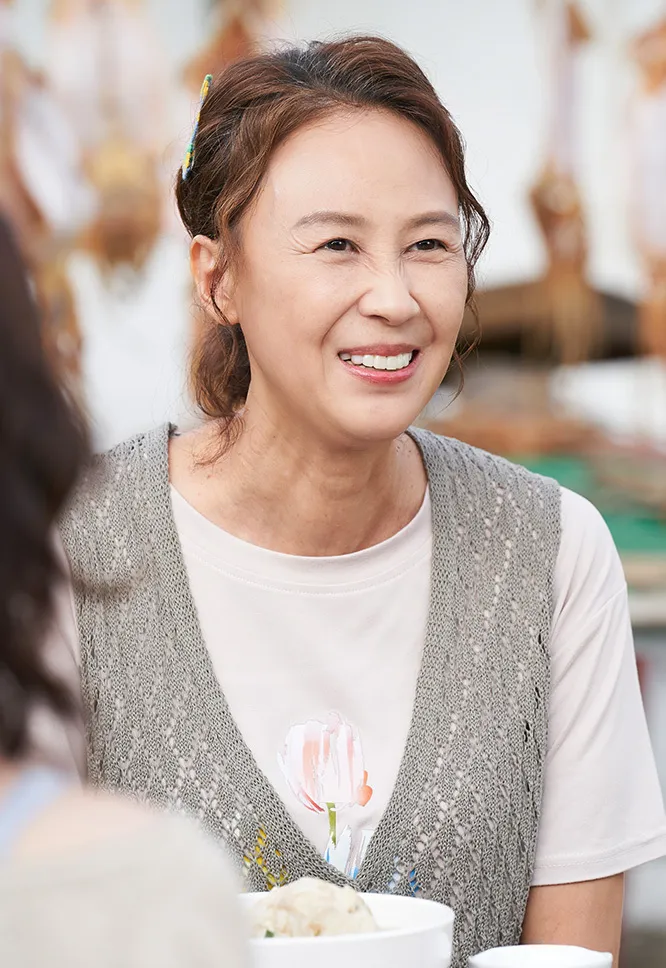
O Yeong Suk (Yoon Bok In) – Me Ri’s mother
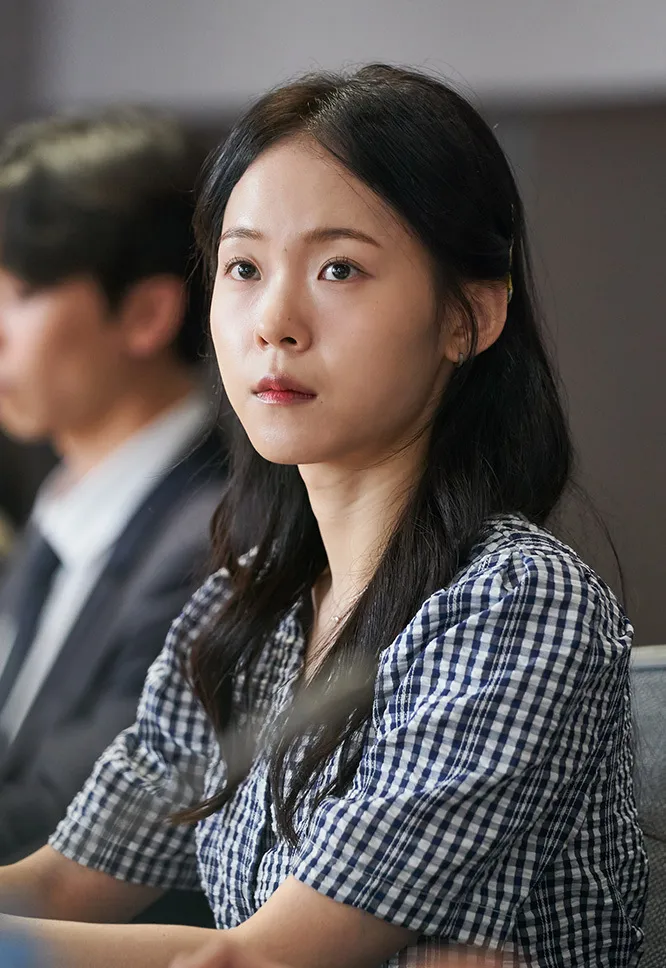
Han Won Seok (Jang Se Hyun) – Me Ri’s colleague
Beauté Department Store
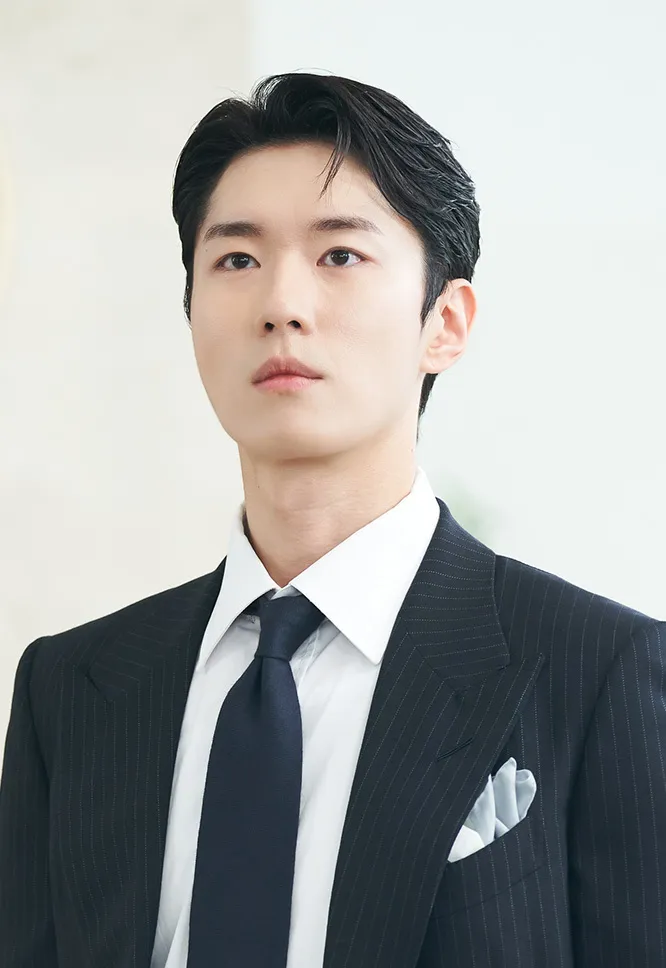
Lee Seong U (Park Yeon Woo) – CEO of Beaute Department Store
Kim U Ju’s family (Me Ri’s former fiancé)
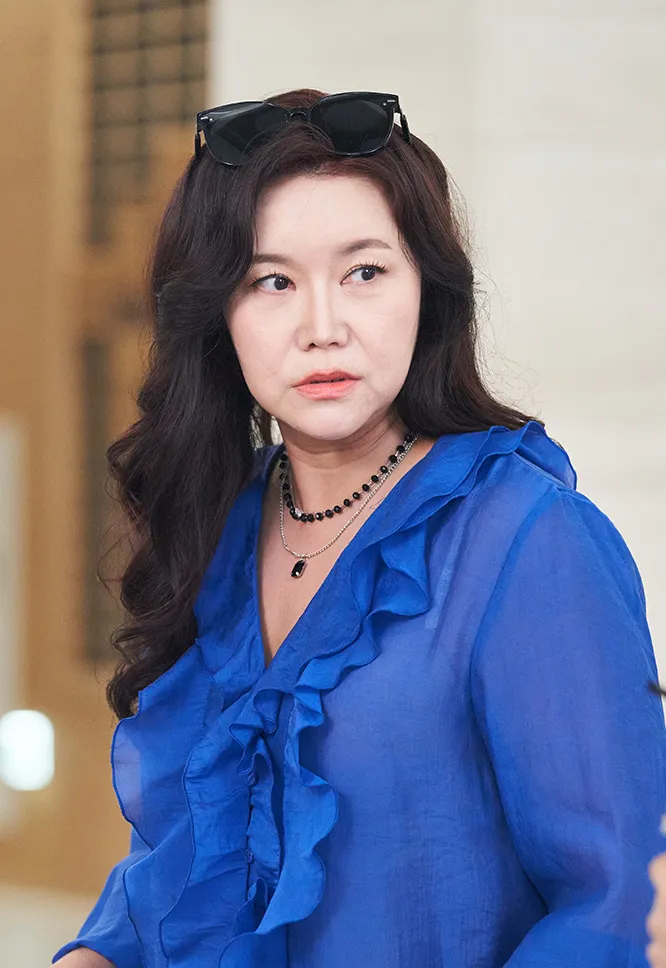
Cheon Eun Seok (Kim Young Joo) – U Ju’s mother
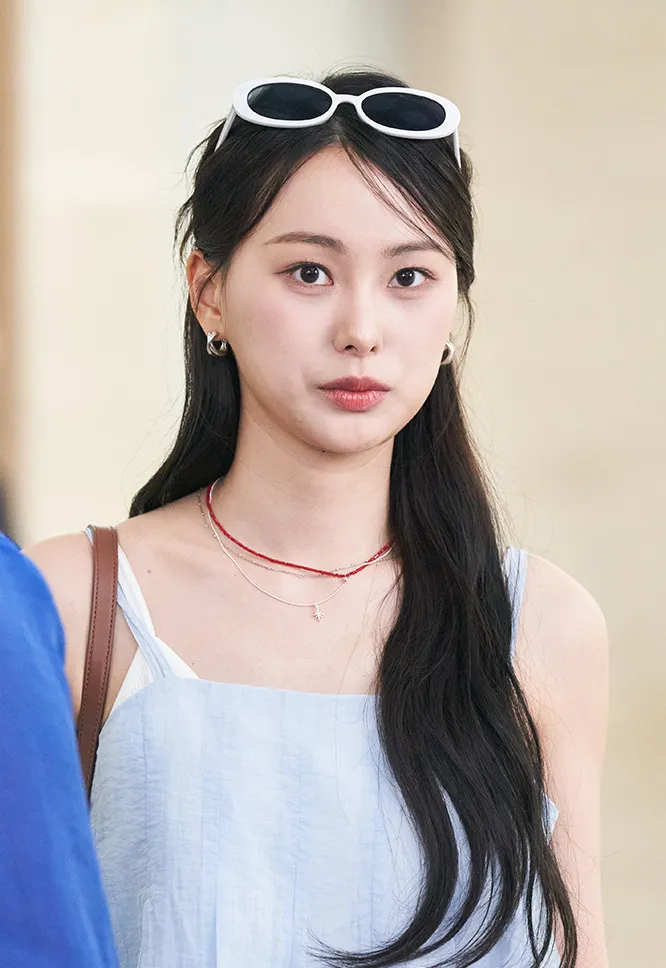
Kim Jin Hwa (Seung You) – U Ju’s older sister
Old-School Drama Charm or Curse?
Trope versus cliché
Firstly, I often read that the words “trope” and “cliché” are used interchangeably. However. they’re not the same.
A trope is a neutral term for any recurring literary or storytelling device, convention, or theme. Tropes are considered the basic building blocks of all fiction and are essential for genre recognition and narrative shorthand. For examples:
- Romance: Enemies to lovers, forbidden love, love triangle, etc.
- Mystery: Amateur sleuth, cryptic messages, red herrings, etc.
- Horror: Abandoned places, cursed artifacts, haunting sounds, etc.
A cliché is a trope that has been overused to the point of being unoriginal and predictable. It often indicates a lack of original thought or lazy writing from the author/screenwriter. A cliché is predictable and uninspired because they are always handled in the same way without innovation. Eventually, it leads to “trope fatigue,” where the audience becomes bored, predicting the outcome with little interest. For example, a love triangle is the trope, and the clichés might be lots of misunderstandings and a third party who becomes obsessed and wants to ruin the relationship. The trope fatigue? The audience despised love triangles of any form.
As an analogy, a trope is like a well-known recipe that you can adapt and experiment with to create a new dish. Meanwhile, the cliché is the stale version of that same recipe that you’ve made and eaten countless times before. Got it?
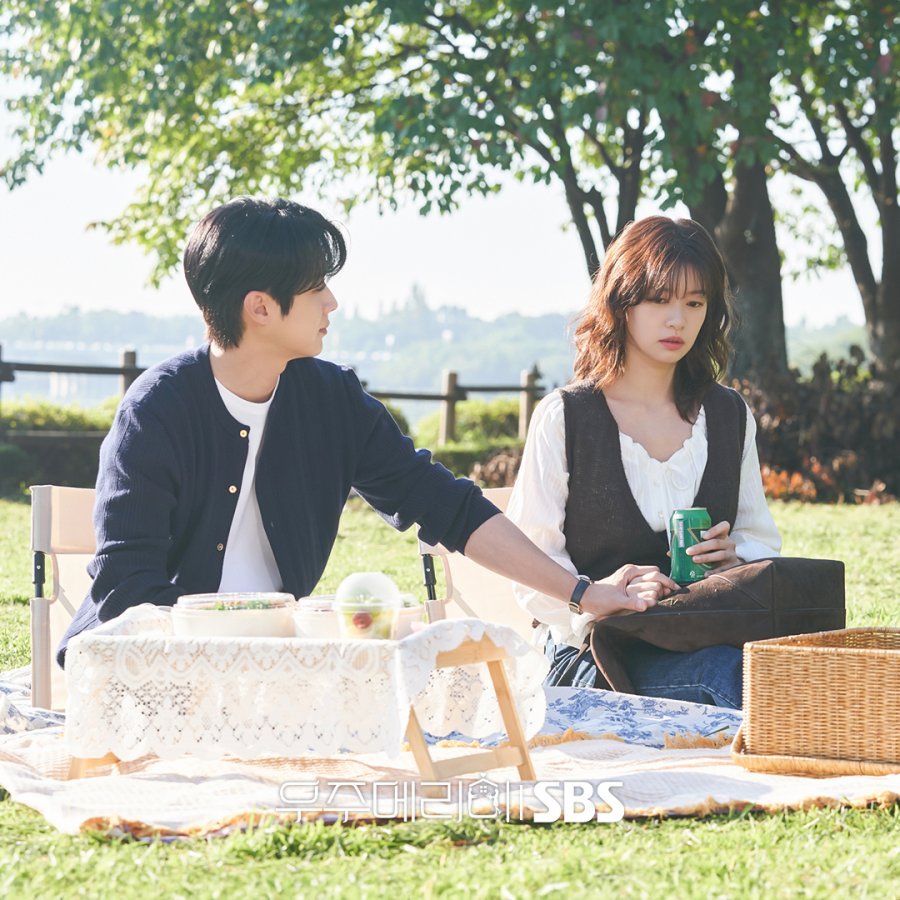
The tropey themes and messages of the drama
Let’s see if you can recognize the tropes used in Would You Marry Me? themes.
Fake Marriage vs. Real Love. The central theme is how a marriage of convenience, initially a 90-day business deal to win a luxury home, gradually develops into a genuine emotional connection. The drama plays with the blurred line between what is pretend and what becomes real love, suggesting that true intimacy can be found in unexpected circumstances.
Second Chances and Starting Over. Me Ri is at a low point after a broken engagement and a housing scam. The fake marriage offers her a second chance at stability and happiness. This theme of picking oneself up after failure is central to her character arc.
Trust and Vulnerability. As the characters navigate their living situation, they are forced to be vulnerable and build trust, which is a significant challenge given Me Ri’s ex-fiancé’s betrayal. The drama emphasizes the importance of trust in a healthy relationship.
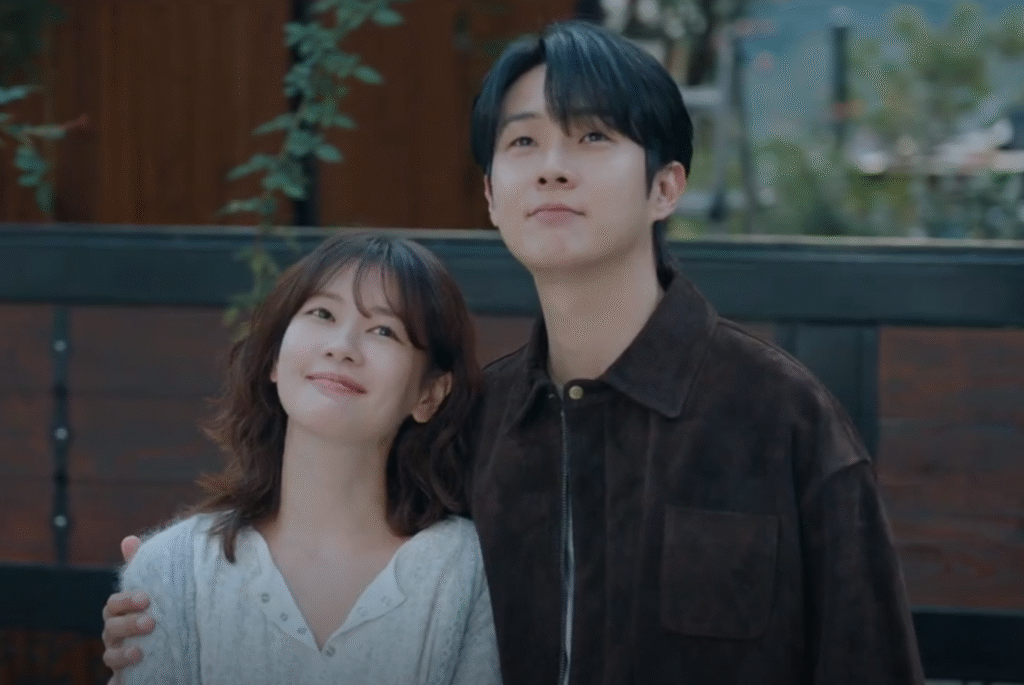
Societal Expectations vs. Personal Happiness. Like many K-dramas, Would You Marry Me? addresses traditional Korean family values and expectations surrounding marriage, contrasting them with individual desires for personal happiness and living life on one’s own terms. The unconventional setup of their relationship challenges traditional notions of how a couple “should” meet and marry.
Personal Growth. U Ju (Choi Woo Shik) and Me Ri undergo personal growth as they learn to compromise, rely on one another, and confront their past traumas and character flaws.
I could see that fake marriage, second chance, trust issues, Korean family values/expectations, and personal growth are tropes, with the first trope being unique to the romance genre.
The criticisms of this drama
Now, let’s read what people who have watched Would You Marry Me? thought about this drama. To be neutral, both positive and negative criticisms were summarized from several review sites:
POSITIVE Criticism
- Praise for Chemistry and Acting. Jung So Min and Choi Woo Shik had great chemistry and strong acting performances. Their characters’ relationship dynamic makes a usual rom-com drama captivating.
- “Old-school” Vibe. The use of familiar tropes, such as contract marriages, childhood connections, and a wealthy, wealthy male lead paired with a poor female lead, appeals to many viewers seeking a comforting, nostalgic experience that offers a fun, feel-good escape.
- Light-hearted Tone. Despite some dark subplots, the drama is still considered light-hearted, making it an easy watch and a good break from more intense shows.
NEGATIVE Criticism
- Formulaic Plot. A common criticism is that the drama heavily relies on existing K-drama clichés and the marriage of convenience trope, leading to a highly predictable plot.
- Pacing and Editing Issues: Annoying and dragged-out subplots with excessive screen time dedicated to the other U Ju (Seo Bum Jun) and his family, as well as the current U Ju’s (Choi Woo Shik) uncle.
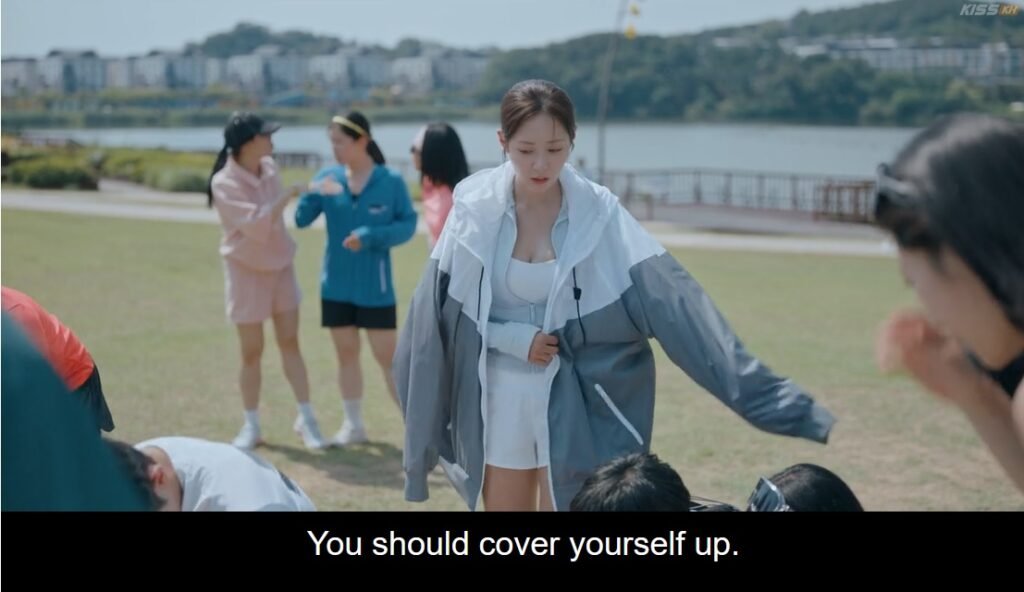
- Controversial scene. Episode 6, involving illegal filming and victim-blaming, generated significant backlash. In the scene, Yun Jin Gyeong, the doctor, and Baek Sang Hyeon, U Ju and Me Ri’s neighbor, are jogging. A lady suddenly collapses. Jin Gyeong starts helping the lady right away. She was wearing normal sports clothes, and nothing was wrong with them. Then two guys show up and start filming her chest while she is trying to save the woman. Instead of confronting those perverts, Baek Sang Hyeon puts a jacket on her and tells her to cover herself. The scene made it look like she did something wrong just because of her clothes.
You see, the overused cliché is the foremost negative criticism in Would You Marry Me? The plot relies heavily on overused tropes and coincidences. Of course, because this drama is not a live adaptation from any novel or Webtoon, the screenwriter was put to blame. Her writing is described as formulaic, predictable, and not groundbreaking.
It’s a romance drama after all
Why are there so many romance-focused dramas being produced?
On the business side. Media production companies often include romance to attract specific demographics, particularly female viewers, who statistically watch a significant amount of shows on TV, video streaming, mobile phones, and social media. Romance is a universal and relatable human emotion that appeals to a vast audience, which in turn helps maximize viewership and profitability. Studios and production companies often operate on formulas that have been researched and proven to be successful and profitable. Including romance, both as the center or a subplot, is definitely an economically calculated move.
On the writer’s side. Sometimes, creating a romance story is easy writing. Romance provides strong storytelling tools, such as a natural source of conflict, emotional engagement, and character development. Seeking or maintaining relationships is a very common type of conflict, making it a simple and familiar subject for writers to explore.
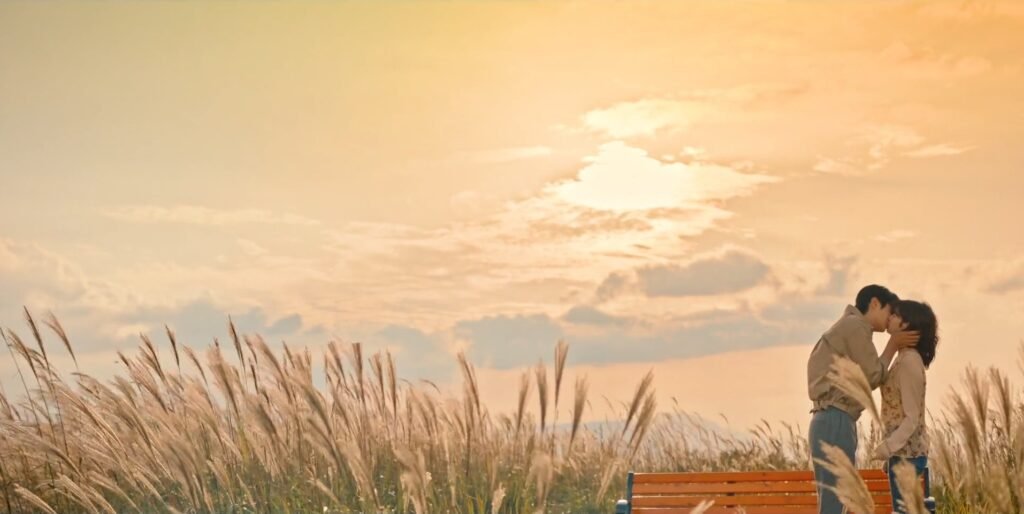
On the audience’s side. Romantic storylines offer viewers a form of escapism, allowing them to retreat into a world where love is central and ultimately prevails, providing comfort and hope.
With so many romance dramas being produced/released, and watched, it’s natural that the stories are predictable because they rely on familiar tropes, established story structures, and audience-pleasing conventions that provide comfort and satisfaction. These include predictable conflicts, such as misunderstandings or a third-act crisis, and a happy ending. While some viewers enjoy the familiarity, others seek novelty within these structures, which is why execution and fresh twists are key to making them feel less stale.
My Thoughts on the Drama
Initially, I thought of writing a review for Would You Marry Me? However, after watching the drama and planning the writing outline, the usage of clichés and the old-school vibe stood out as the main topic. In the end, I decided to write this editorial article. However, since I already made an outline draft to review the drama, consider below as my mini review of this drama:
Story
- I was well aware of the tropes before I started watching it, because it was stated in the more detailed synopsis by MyDramaList. Fake marriage, cohabitation, and second-chance romance. However, there are clichés that I couldn’t stand, for example, childhood connection. I won’t go further to list other clichés used in this drama.
- I don’t like the annoying subplots and excessive screentime of the obsessive ex and the uncle.
Acting (+1.0)
- The off-chart chemistry of Choi Woo Sik and Jung So Min. In fact, I started this drama because I like Choi Woo Sik and have watched some of his dramas.
- I also love the subplot of the secondary couple. Their romance development is slow-burning but realistic.
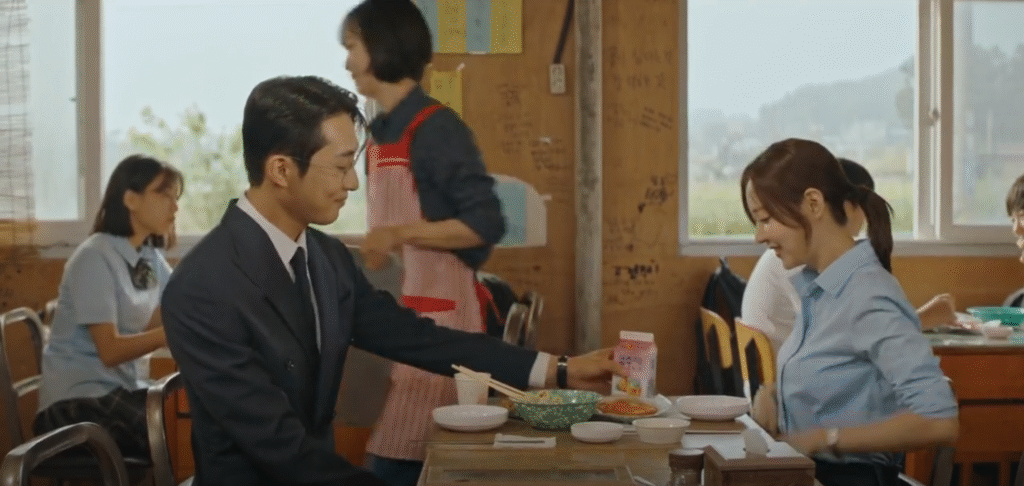
The second couple Baek Sang Hyeon and Yun Jin Gyeong
Visualization (+1.0)
- As a visual person, the pastel color palettes in the poster and other promotion materials attracted me the most. The cinematography is carefully crafted to be visually appealing, using clean compositions and color palettes that complement the romantic and melodramatic themes of the show.
My rating for this drama was based on MyDramaList’s scoring system, which is from 0.0 to 10.0. For any drama/movie/show I completed, I gave a minimum rating of 6.0 to appreciate the hard work of the production team, and to adjust to MyDramaList’s overall score base. From the additional score above, my final rating is 8.0/10.
Conclusion
To conclude this article, in my opinion, the cliché overuse of Would You Marry Me? a real bother, despite the K-drama old-school promise to leave the audience feeling nostalgic. For those who have watched many romance dramas, experiencing boredom is a common phenomenon. It often stems from genre fatigue and the predictable, repetitive plotlines that are common in the genre.
If you haven’t watched the drama and still want to give it a try, focus on different aspects beyond the main plot. Pay attention to the chemistry between the main characters, the secondary couple, beautiful cinematography, or the many OSTs (a total of 9 songs).
At the end, whether the old-school K-drama vibe in Would You Marry Me? is a charm or a curse, it is totally subjective to the watcher’s unique drama experience.
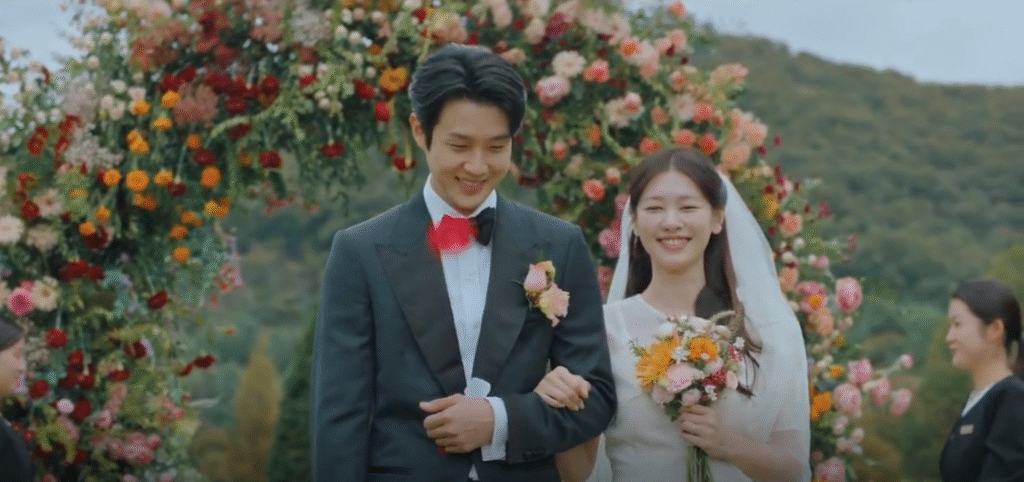
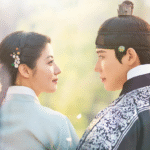
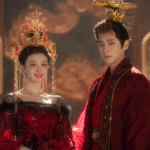

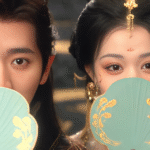
I need to watch the last 6 eps. I agree with all the cliques and the controversial scene in episode 6. I honestly was waiting for everyone to gang up on those kids. Someone is saving a life, and you’re being gross. Anyway, I love the chemistry and the subplots. The wealth gap is always an issue in contract marriages, but this one dowsnt really close it, since she doesnt even know he’s rich, which is interesting. The childhood connection always irks me because why can’t we meet as adults😑, but I get this one because she was his “savior,” but it would have worked without it.
Great review!
They wanted to make Baek Sang Hyeon chivalrous, but ended up with a backlash! I don’t know what the writer was thinking! I never liked the childhood connection, either. In this case, they were both childhood’s first love? It’s ridiculous and over-the-top, so that’s why I wrote I liked the second couple’s romance better it seems more natural. Anyway, thanks for reading!